Keresés: %s
Keresés: %s
The Hungarian-Kosovar Joint Commission on Economic Cooperation held its second Session in Budapest
The Hungarian-Kosovar Joint Commission on Economic Cooperation held its second Session in Budapest
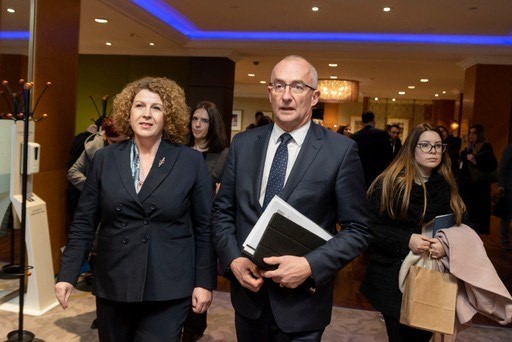
The second Session of the Hungarian-Kosovar Joint Commission on Economic Cooperation (JCEC) was held in Budapest on 1-2 February 2023, chaired by Péter Sztáray, State Secretary for Security Policy and Energy Security of the Ministry of Foreign Affairs and Trade of Hungary, and his Kosovar partner, Rozeta Hajdari, Minister of Industry, Entrepreneurship and Trade at the Government of Kosovo.
State Secretary Péter Sztáray underlined Hungary's commitment to the cooperation with the Western Balkan countries. In this regard, the Hungarian Co-Chair also highlighted that the political and economic stability and prosperity of the region are of key importance for our country and the EU. Therefore, we welcome any opportunity to hold a dialogue with the Kosovar partners and we strongly encourage the visa liberalisation for Kosovo. We are convinced that this measure could also contribute to maintain Kosovo's European perspective.
During the Co-Chairs’ meeting, the Sides discussed and evaluated the areas of cooperation identified during the experts’ meeting and the achievements in these fields, with special regard to economic cooperation, manufacturing industry, treasury, agriculture and food industry, environmental protection and water management, tourism, education, research and development, science and technology. Mr. Péter Sztáray was pleased to note that our bilateral trade with Kosovo has almost tripled since 2015 and expressed the hope that this positive tendency will continue.
The Sides welcomed the fact that in the field of science diplomacy cooperation between Hungary and Kosovo agricultural innovation has special importance. Considering that Hungary has significant experience and expertise in several sectors of agriculture, we are ready to provide professional support to the Kosovar Side in the fields of seed breeding, forestry, the production and quality control of high quality honey.
Education plays an important role in the Hungary-Kosovo relations. The Stipendium Hungaricum scholarship programme, which celebrates its 10th anniversary this year, is very popular in Kosovo, with the number of Kosovar applicants regularly exceeding the annually offered 75 scholarships. The Co-Chairs agreed that there is growing interest in educational cooperation between the Hungarian and Kosovar higher education institutions.
Following the plenary session, the Co-Chairs signed the Protocol of the 2nd Session of the Hungarian-Kosovar JCEC and then the representatives of the University of Pannonia and the University of Pristina signed a memorandum of understanding. The Sides agreed that the forthcoming session of the Hungarian-Kosovar JCEC will take place in Pristina.
On the margin of the JCEC, HEPA Hungarian Export Promotion Agency and the Kosovo Investment and Enterprise Support Agency (KIESA) organised a business forum, which provided a great opportunity to develop business relations between the Hungarian and Kosovar companies. Within the framework of the Forum, the two export promotion agencies signed a memorandum of cooperation to further strengthen their future partnership.
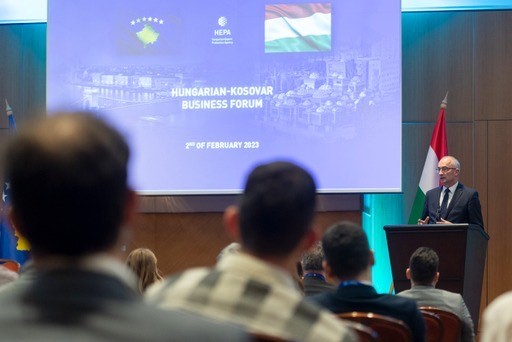
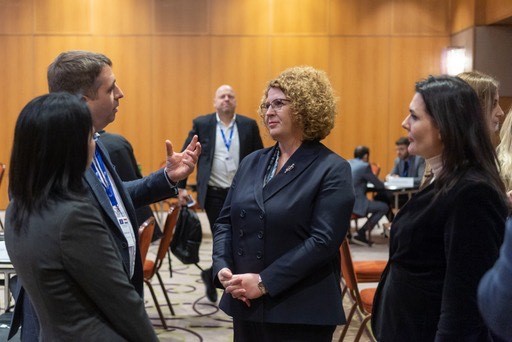
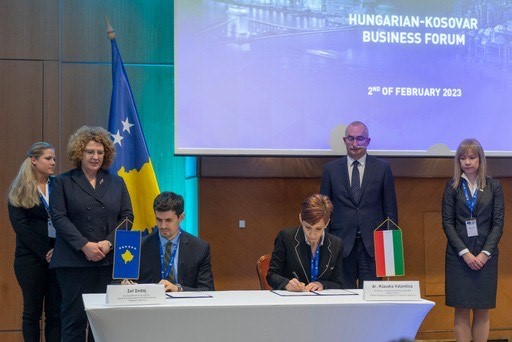
The solemn ceremony of signing the twinning agreement between the city of Peja and the city of Eger in Hungary
The Mayor of the Municipality of Peja, Mr. Gazmend Muhaxheri and his associates have received the Mayor of the Municipality of Eger, Mr. Adam Mirkoczki.
Today, during the meeting, the twinning agreement was signed between the Municipality of Peja - Republic of Kosovo and the Municipality of Eger - Republic of Hungary.
"On the 15th anniversary of the Independence Day of Kosovo - the Municipality of Peja has chosen to sign the twinning agreement with the city of Eger in Hungary, so it is the first finalization that has been made between the Republic of Kosovo - the Municipality of Peja and the Republic of Hungary – Municipality of Eger. We have just signed the twinning agreement between our cities and let it be a good start for the cooperation of the citizens of the Municipality of Peja and the citizens of the Municipality of Eger, which will serve to promote tourism, culture, education, as well as all the opportunities for cooperation that we will have in the future", said President Muhaxheri.
"I thank the mayor Muhaxheri for the warm hospitality, it is a special pleasure that we are signing this city twinning agreement on the Independence Day of Kosovo. It is a special pride that between the state of Hungary and the state of Kosovo, the first twinning agreement between the two states was signed, so Peja and Eger are the two twinned cities. Today, together with the mayor Muhaxheri, we have signed a story, it is a fantastic situation between two cities and between two countries for any kind of cooperation that we will have from now on", said the mayor Mirkoczki.
These two cities agree to upport and inspire the exchange of information between the two cities, which will include representatives of the municipal government, the field of education, economy, industry, health, welfare, art and culture. Peja from Kosovo and Eger from Hungary are committed to carry out the goals and activities that they will have, in order to create and further develop the partnership of the twin cities.
The Mayor of the Municipality of Peja, Mr. Gazmend Muhaxheri and his associates have received the Mayor of the Municipality of Eger, Mr. Adam Mirkoczki.
Today, during the meeting, the twinning agreement was signed between the Municipality of Peja - Republic of Kosovo and the Municipality of Eger - Republic of Hungary.
"On the 15th anniversary of the Independence Day of Kosovo - the Municipality of Peja has chosen to sign the twinning agreement with the city of Eger in Hungary, so it is the first finalization that has been made between the Republic of Kosovo - the Municipality of Peja and the Republic of Hungary – Municipality of Eger. We have just signed the twinning agreement between our cities and let it be a good start for the cooperation of the citizens of the Municipality of Peja and the citizens of the Municipality of Eger, which will serve to promote tourism, culture, education, as well as all the opportunities for cooperation that we will have in the future", said President Muhaxheri.
"I thank the mayor Muhaxheri for the warm hospitality, it is a special pleasure that we are signing this city twinning agreement on the Independence Day of Kosovo. It is a special pride that between the state of Hungary and the state of Kosovo, the first twinning agreement between the two states was signed, so Peja and Eger are the two twinned cities. Today, together with the mayor Muhaxheri, we have signed a story, it is a fantastic situation between two cities and between two countries for any kind of cooperation that we will have from now on", said the mayor Mirkoczki.
These two cities agree to support and inspire the exchange of information between the two cities, which will include representatives of the municipal government, the field of education, economy, industry, health, welfare, art and culture. Peja from Kosovo and Eger from Hungary are committed to carry out the goals and activities that they will have, in order to create and further develop the partnership of the twin cities.
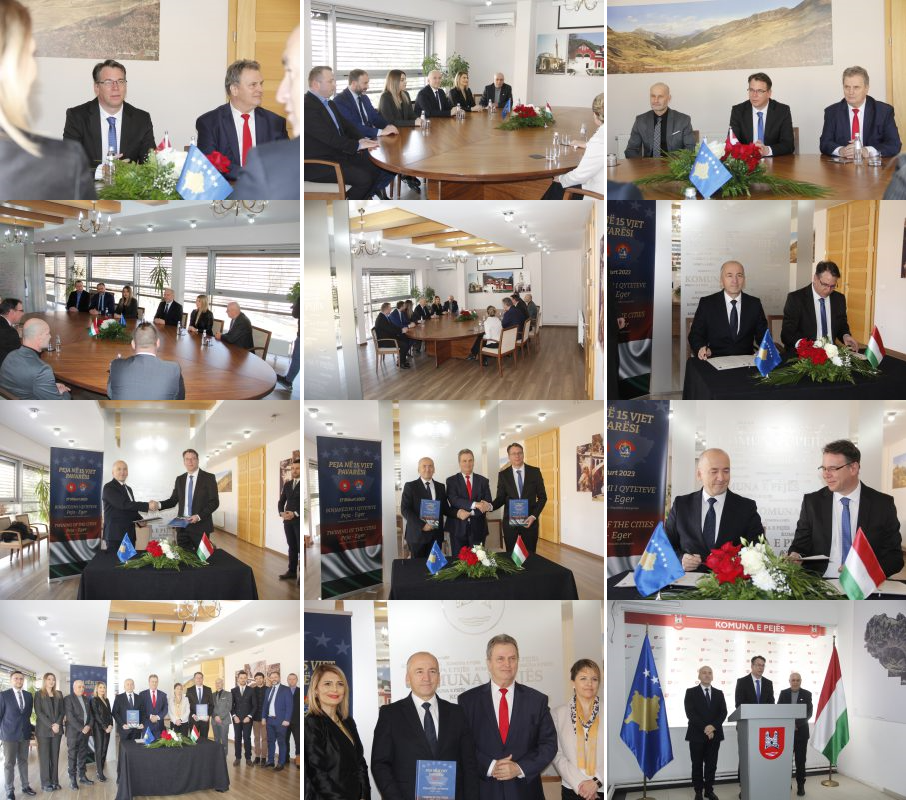
Szijjarto: Western Balkans key for EU
Szijjarto: Western Balkans key for EU
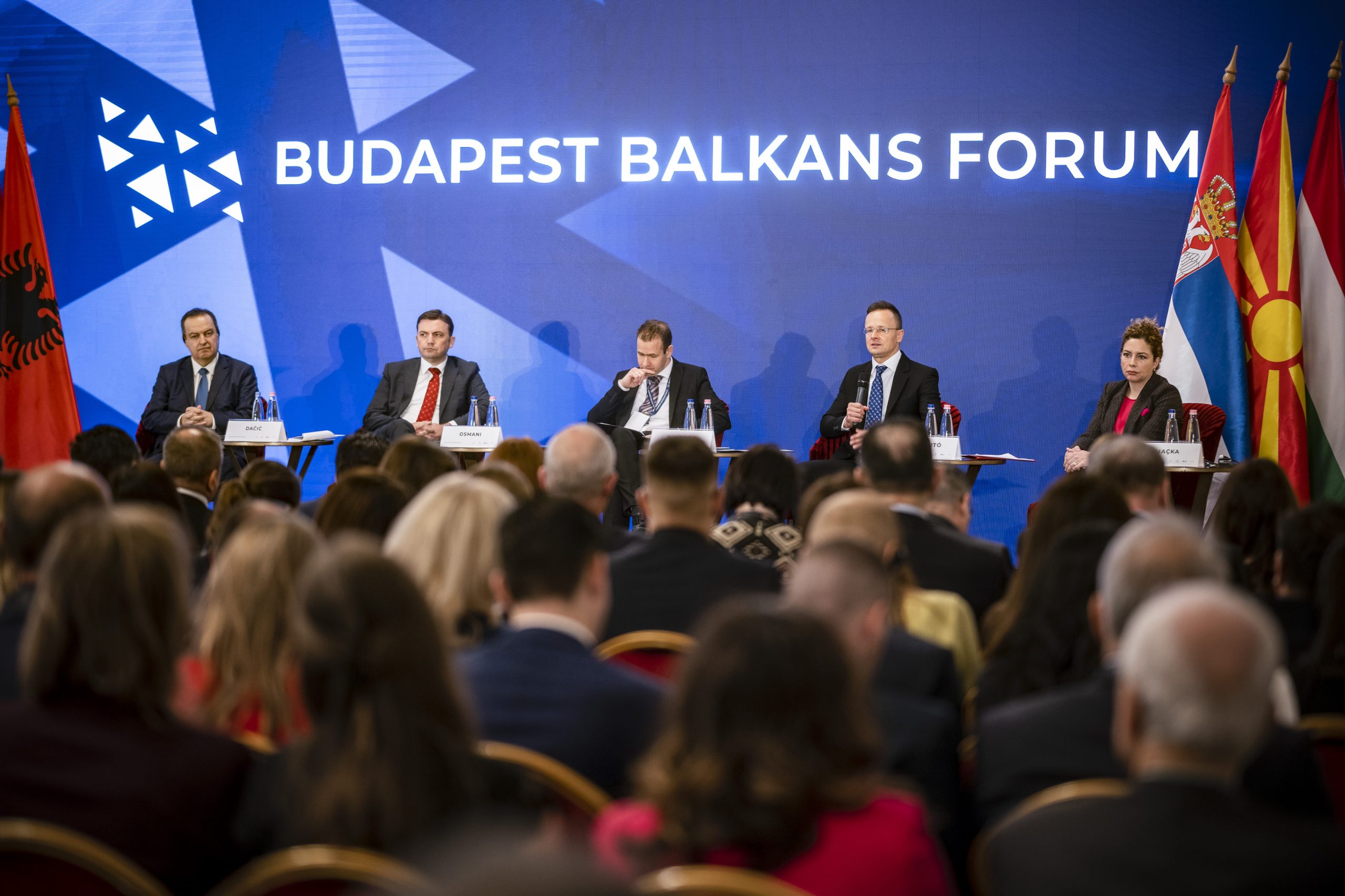
Budapest, March 9 MTI – The European Union “currently needs the Western Balkans more than they need us” and Hungary has a security interest in speeding up the enlargement process, Foreign Minister Peter Szijjarto said on Thursday at the Budapest Balkans Forum in Budapest. In a speech held together with his Serbian, North Macedonian and Albanian counterparts, Szijjarto said one of the roots of the EU’s “many ailments” was the “failure of the enlargement process”.
The last country, Croatia, joined the bloc a decade ago, and the United Kingdom has since left the EU, he noted. Still, supporters of a quick enlargement are “currently in a minority in the EU”, he said. He slammed member states he said hypocritically supported the enlargement publicly while “obstructing it in evergy way possible”. Meanwhile, it is a matter of national security for Hungary, as “the international community has so far failed to handle the root causes of migration”. That raises the danger of further waves which Europe will be unable to withstand without support from the Western Balkans, he said.
Call for scholarship application of the Ministry of Foreign Affairs and Trade of Hungary for the credit-based Hungarian Language and Hungarian Studies Programme in the academic year of 2023/2024
The Ministry of Foreign Affairs and Trade of Hungary (hereunder (MFA) based on the 241/2016. (VIII.16.) Government Decree and the 11/2022. (IX.6.) MFA Order on the Organizational and Operational Regulations of the MFA within the Balassi Scholarship Programme with Márton Áron Scholarship invites applications from non-Hungarian-speaking university students and young graduates not older than 35 years in the academic year of 2023/2024 for the
HUNGARIAN LANGUAGE AND HUNGARIAN STUDIES PROGRAMME.
1. THE GOAL OF THE APPLICATION
The application provides an opportunity to participate in Hungarian Language and Hungarian Studies training as a scholarship holder.
The objective of the Hungarian Language and Hungarian Studies scholarship is to increase knowledge (acquired at university outside Hungary) of Hungarian Language and “Hungarology” of foreign students and graduates interested in Hungary, Hungarian culture and Hungarology. The two-semester course takes place in Budapest with the cooperation of the University of Pécs and with KKM Magyar Diplomáciai Akadémia Kft. (hereunder KKM MDA Kft).
2. THE OBJECT OF THE APPLICATION
The goal of Hungarian Language–Hungarian Studies training is to increase the Hungarian language competence and “Hungarology” knowledge acquired at universities outside Hungary. The programme provides a great opportunity for participants to actively explore Hungary, the living Hungarian language and Hungarian culture. The 10-month accredited university part-time training programme offers 26–55 ECTS credit points. The successful completion of the programme is confirmed by the issuance of a certificate by the University of Pécs.
There are three types of curricula (A, B, C) available according to the different language competence of students.
The 10-month (from September to June) long training consists of two semesters including a study period of 14 weeks and an exam period of 4 weeks. During their study period, students have to attend 28/30 classes, while in the exam period they have to take 4-6 exams. During the training, there are cultural programmes as well, e.g. museum visits organized for the students, which will be implemented depending on the epidemic situation.
Improving the students' language skills is a major goal of the training. Intensive language learning takes up 12–28 lessons a week in small study groups. Language training is completed with an international intermediate or advanced ECL language exam approved by the Hungarian State. Its credit value is 10/15 depending on the level (intermediate or advanced). (The level and type of the language exam and the amount of the examination fee depends on the decision of the language skills assessment committee.) The interdisciplinary courses in Hungarian Studies transfer complex and diverse knowledge of today’s Hungary and its cultural heredity. Besides compulsory lectures and seminars (subjects: history, literature, linguistics, ethnography, history of art and music, geography and today's society, economy, culture and political system) students take part in optional seminars according to their field of interest. The credit value of “Hungarology” studies is 16/36/40 in total.
At the end of Training-B and-C (besides the completed language exam) scholarship holders also take a final exam on Hungarian Studies, which means defending a final thesis written on a chosen topic.
Class attendance is compulsory. Should a participant miss class without cause, or violate the Scholarship Agreement, he/she will immediately lose the right to continue the programme and the right to dormitory placement. Any individual who has been expelled from the programme will have to repay all stipend (monthly allowance) received up to that date.
3. THE LENGTH AND THE CONTENT OF THE SCHOLARSHIP
The duration of the programme is 10 months (September 2023 – June 2024).
The scholarship includes:
- full tuition fee
- HUF 45,000/month allowance (to be paid monthly)
- free accommodation
- student card (offering discounts)
- basic health services
Maximum number of scholarships to be awarded: 60
4. CONDITIONS OF THE APPLICATION
The application is open to individuals of non-Hungarian citizenship who have reached the age of 18 at the start of the training, whose native language is other than Hungarian, and are graduate- or undergraduate students of Hungarian studies and they want to deal with the Hungarian language and culture in the future as well. Age limit is 35 years.
5. DEADLINE OF APPLICATIONS
Deadline of applications: 17 April 2023, 24.00 (UTC+1)
6. INFORMATION ON THE SUBMISSION AND EVALUATION OF THE APPLICATION
Steps of application:
The call for application is published in Hungarian at
https://balassischolarship.kormany.hu
in English at
https://balassischolarship.kormany.hu/call-for-application-hungarian-studies
1. Application website
Applications are to be submitted via the application website https://spjelentkezes.mdakft.hu
Please visit the site, prepare and submit your application according to the information provided there.
2. Required documents
Required documentation and references for the application:
- signed statement of the applicant (format: .pdf) [mandatory document]
- a professional plan of max. two pages describing the applicant’s field of interest/research (format: .doc, docx) [mandatory document]
- copy of transcripts and diplomas (format: .pdf) [mandatory document]
- copy of passport (format: .pdf) [mandatory document]
- reference letter from an acknowledged expert in the field of Hungarian Studies or in the applicant's field of interest (format: .pdf) [recommended document]
Evaluation of the Application
The Minister of Foreign Affairs and Trade (responsible for operating the scholarship) makes decisions on the applications based on the proposal of the Evaluation Committee set up by MFA. The decision is binding on all applicants. MFA will not consider applications submitted after the deadline and/or incorrectly and/or incompletely and/or illegibly. Missing application documents cannot be replaced.
Publication of the results
Applications will be evaluated by 3 May 2023 and applicants will be notified about the results within 3 workdays afterwards via e-mail by MFA.
Successful applicants must confirm the acceptance of the scholarship via e-mail at the latest by 10 May 2023.
The scholarship does not cover the following expenses:
- travel to and from Hungary
- language exam fee (approx. HUF 45,000)
- spending money
- the fee of type visa ("Purpose of Study” or other), if necessary
7. CONDITIONS OF WINNING AND OBTAINING THE SCHOLARSHIP
- Signing Scholarship Agreement with the KKM MDA Kft.
- Any applicant providing unreal, false information on the datasheet, and/or making such a statement when applying, and/or withholding any fact or data concerning the assessment of the application may be excluded from the application procedure.
- By submitting their application, applicants consent to the processing of their personal data on the application form by the MFA, by the decision-shaping bodies and decision-makers defined above for the time necessary for the decision - but not later than 15 September 2023.
- The list of scholarship winners is public. By participating in the application, the applicant agrees that his/her name and nationality will be published on the website of the MFA if s/he is awarded a scholarship by the MFA.
- The applicant acknowledges that, because of the epidemiological situation, the MFA may postpone the pre-planned start date of the Hungarian Language and Hungarian Studies Programme (4 September 2023) and/or apply distance learning methods in the training, or in a serious situation may refuse to start the training, may decide to suspend the training and continue it after the suspension has been lifted, and may decide to apply a training period shorter than it is determined in this call for application. The applicant acknowledges that the implementation of professional programmes depends on the evolution of the epidemic situation and related rules. The applicant undertakes that in the event of the occurrence of any of the above circumstances s/he does not file a claim for damages against the MFA or KKM MDA Kft. regarding this circumstance.
- The scholarship holder undertakes - if it is obligatory according to current Hungarian legislation and the regulations concerning the scholarship programme - to take part in the health screening test organised by the MFA and/or KKM MDA Kft. after enrolling in the training. The scholarship agreement is terminated, if, as a result of this screening test prescribed by the doctor performing the screening test, the applicant receives a „not recommended agreement for training from medical point of view” result, or the applicant refuses to carry out the screening test.
8. FINANCIAL SOURCE OF THE PROGRAMME
Act XXV of 2022 on the central budget of Hungary for 2023, Annex 1, Chapter XVIII, Ministry of Foreign Affairs and Trade, Title 7, Chapter 7, Chapter 1, Appropriations, Article 33, Scholarships and other training programmes for foreigners. Act on State Finances NO: 381084
Amount: HUF 403.897.996
9. CONTACT
Further information:
Tünde Sasvári
E-mail: hungarologia@mdakft.hu
Phone: +36 70 777 8552
__________________________________________________________________________________________
The official call-for-application and the application form can be found at the Balassi Scholarship Programme webpage of the Ministry of Foreign Affairs and Trade
(in Hungarian: https://balassischolarship.kormany.hu,
in English: https://balassischolarship.kormany.hu/call-for-application-hungarian-studies.
This Hungarian man became the ordinary Roma hero of the year
The winner, Richárd Kovács, currently works as a first lieutenant in the traffic police department of the Dombóvár Police Department. He earned a special prize at the Tudományos Diákkören with his thesis entitled “Ethnic profiling during police measures”. He won the Mr. Policeman title for bodybuilding several times and returned home with several medals from the World Police and Fire Games held in the United States.
He is currently studying romology at the Faculty of Arts of the University of Pécs, and is also a law student at the Faculty of State and Law of the University of Pécs.
His research interests are extreme poverty and policing sociology. He wants to show the children what results can be achieved with perseverance, sports and learning. Due to their important role in previous campaigns, Gusztáv Mundér and Jenő Setét received a posthumous Aranypánt memorial award at the awards gala held at the Budapest Jazz Club, they wrote.
In 1971, the first World Roma Congress convened on this day, in honor of which April 8 was later declared International Roma Day by the United Nations (UN).
In Hungary, the Roma Press Center – this year in cooperation with the 1 Hungary Initiative – will present the Golden Belt award to the ordinary Roma hero of the year, established in 2015. The aim of the award, which was last presented in 2019 due to the coronavirus epidemic and announced for the sixth time this year, is to present to the public year after year people who have gained recognition in their environment through their occupation, and who also live their everyday lives as self-identified Roma.
The term “gold belt” also symbolizes the dual identity of the majority of Roma, they wrote in the announcement.

The Speech of President Katalin Novák given on the occasion of the visit of Pope Francis to Hungary
Santo Padre:
¡Dios nos ha traído a Usted, el Hombre de la Paz, a Hungría!
¡Bienvenido! En húngaro se dice: "Isten hozta" y literalmente significa: Dios nos ha traído a Usted para estar con nosotros.
Most Holy Father, Man of Peace!
A warm welcome to Hungary!
Bienvenido! – in Hungarian, we say: „Isten hozta”. This phrase literally means: God has brought you to us.
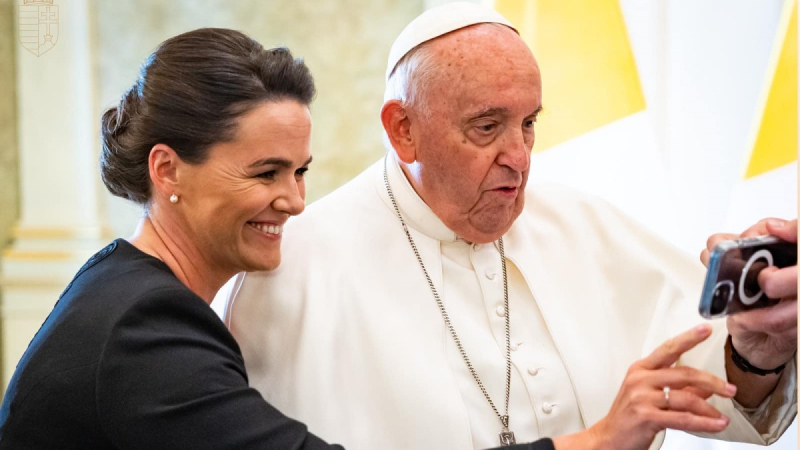
We, Hungarians welcome the guests we hold dear with these words. Today, this greeting has a deeper and higher meaning. I believe, we believe, that the arrival of Your Holiness right now, right here, in Hungary, is not a coincidence. Neither is it the consequence of the world political context alone. It is also more than the acceptance of the invitation of the Catholic Church of Hungary and the Hungarian state. The visit of Your Holiness to Budapest is Kairos. The right time and the right place for a meeting, to ring the bells, to announce just peace. When the time is right, God brings together and armours with courage those who trust in the power of love, unity and peace. We Hungarians wish to rise to the height where – sursum corda - we find the self-evident togetherness of the followers of Christ and – without distinction - all well-intended people seeking peace. Where we can look forward to a renewal of our lives.
József Mindszenty, former cardinal of Hungary awaiting beatification, who „exercised Christian virtues to a heroic degree” once said: „The rise of a nation always begins today.” There are embers under the ashes in the weary, too. They are only waiting to catch fire.“
We would like the visit of Your Holiness to Hungary to be a starting post for this ascension, leading to a height from which we see the path to intellectual-spiritual renewal and peace. But we, Hungarians and Europeans, must push off and then stay on the right course ourselves. We may expect encouragement, guidance, confirmation in all of this – as indeed we do – but only we, the people and leaders of Europe can use the free will God gave us in a way leading to a more peaceful, democratic and stronger Europe.
The need stated in our Fundamental Law, adopted in 2011, addresses us all: „after the decades of the twentieth century, which led to a state of moral decay, we have an abiding need for spiritual and intellectual renewal.”
Saint John Paul II visited us when his visit was needed most: at the new beginning after the fall of communism. The same is also true for today’s visit: Your Holiness has come when Hungary and Europe need it most. Over the past thirty years, we renewed the ecumenism conceived in martyrdom of the Catholics, the Orthodox and the Protestants in the ecumenism of the preservation of Christian values. Your Holiness now confirms our faith that a life built on Christian values has a foundation, a meaning and a future in the 21st century as well. We also support Your Holiness in the same. This is what we give to each other: the protection of human life, of the family, the preserving power of the Christian faith. This is why we declared in our Fundamental Law that „Hungary shall protect the institution of marriage as the union of a man and a woman established by voluntary decision, and the family as the basis of the survival of the nation”, and that “Every human being shall have the right to life and human dignity; the life of the foetus shall be protected from the moment of conception.”
We are allies. We protect human life together, men and women separately and in union with each other, our prosecuted Christian brothers and sisters, but also the freedom of those who think and live differently.
Now, the bloody war in our immediate neighbourhood gives a grave, tragic timeliness to our alliance.
Filled with pain and hope, I am turning to Your Holiness. We, Hungarians, can almost touch the devastating reality of the war. One and a half million people fled Ukraine in our direction, and we are helping the refugees by exemplary cohesion. We see the pain of families torn apart, hear the wailing of mothers grieving their sons. Among them Hungarian mothers in Transcarpathia. We see the injustice. We want to protect our values, and our common future. We, mothers, want to win peace, not the war. We do not want to send our sons and husbands to the front.
How far away we still are from the road to peace! Where is the real will for a ceasefire! Where is the realisation that war and anger must not be heated, but cooled!
Holy Father! Hungarians – and millions across the world - see you as the Man of Peace! Who we hope will be able to talk: with Kiev, Moscow, Washington, Brussels, Budapest, with everyone without whom there can be no peace. Here in Budapest, we are asking you to act in person for a just peace as soon as possible!
Most Holy Father! As the first female president of our country I thank you for encouraging and strengthening women in starting a family, raising children, and in their leadership roles at the head of our communities.
Blood, death and deepening poverty marks the passage of the war. Today, we must pay particular attention to those suffering deprivation. To us Hungarians, our history has given us wonderful examples of saints even in this. Eight hundred years ago we had a princess, Elisabeth, who governed the province in place of her husband, a margrave, who went off to war. Later, Elisabeth smuggled out food collected in secret for the poor in her apron. In the face of an attempt to disclose her forbidden philanthropy, God turned the alms into roses to preserve Elisabeth’s truthfulness. Since then, the rose of Saint Elisabeth has been spiritual nourishment for millions: the symbol of helping the needy, the vulnerable, refugees; the symbol of mercifulness. In Hungary, this rose is also the symbol of a joint programme of the government and the Church enabling over one hundred thousand children each year to camp at Elisabeth Camp and enjoy physical and spiritual recreation. The life of Saint Elisabeth also proves that women have a special responsibility to point out that good governance without mercifulness and without solidarity with the vulnerable is not possible.
Among our gifts, Your Holiness will find Saint Elisabeth’s rose bushes. And when they blossom out in the Vatican Gardens, think of all those – including the poor, those seeking support in their need and us, Hungarians -, to whom you give spiritual nourishment, joy and hope by your visit and service. Bienvenido – God has brought you to us!
International Visegrad Fund info sessions in Kosovo !
The International Visegrad Fund’s Executive Director, Amb. Petr Mareš and project managers Ms. Ewelina Stacherzak and Kateřina Šrámková are planning to visit North Macedonia and Kosovo next week between May 15 and 18. The aim of the visit is to share information about the opportunities offered by the Fund´s mechanisms: Visegrad+ Grants, and Visegrad Mobility Programmes, as well as to help Western Balkans’ organizations to find project partners in V4 region or to discuss and consult their project ideas.
The info sessions will be held in Skopje on Monday, May 15, in Bitola on Tuesday, May 16 and in Pristina on Wednesday, May 17.
The registration for the info sessions is open and it lasts until the very day. Participants can apply via this link:
For more information do not hesitate to contact us (stacherzak@visegradfund.org, sramkova@visegradfund.org).
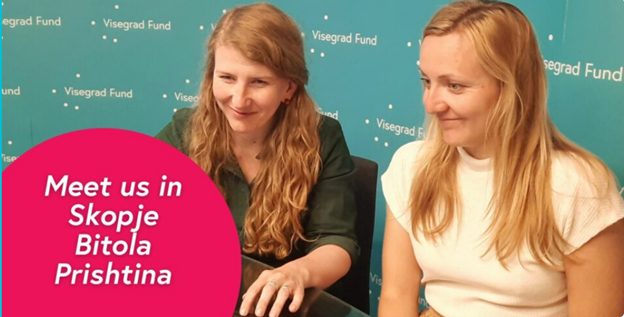
Exhibition on the life of Queen Consort Geraldine Apponyi has opened in Peja
On 15 of June, 2023, the Embassy of Hungary in Kosovo together with the Directorate of Culture Youth and Sport and Gallery of Art of the Municipality of Peja organized the opening ceremony of the Exhibition on the Life of Queen Geraldine Apponyi, where H.E. József Bencze, Ambassador, Mayor of Peja Mr. Gazmend Muhaxheri and Ms. Xhenet Syka, Director of Culture Youth and Sport opened the exhibition.
The opening ceremony was followed with the performance of the Women's choir of Peja, during the event as well participants enjoyed and were amazed by the exhibition as well as had enjoyed the cocktail organized by the Municipality of Peja as well as tasting of the Hungarian Wines provided by the Embassy for this special cultural occasion.
H.E. József Bencze, Ambassador received a Gratitude Letter from the Mayor of Peja Mr. Gazmend Muhaxheri, where he was thanked for his service and as well the good cooperation among the countries and as well as relations were tightened by having the twin municipalities Eger and Peja.
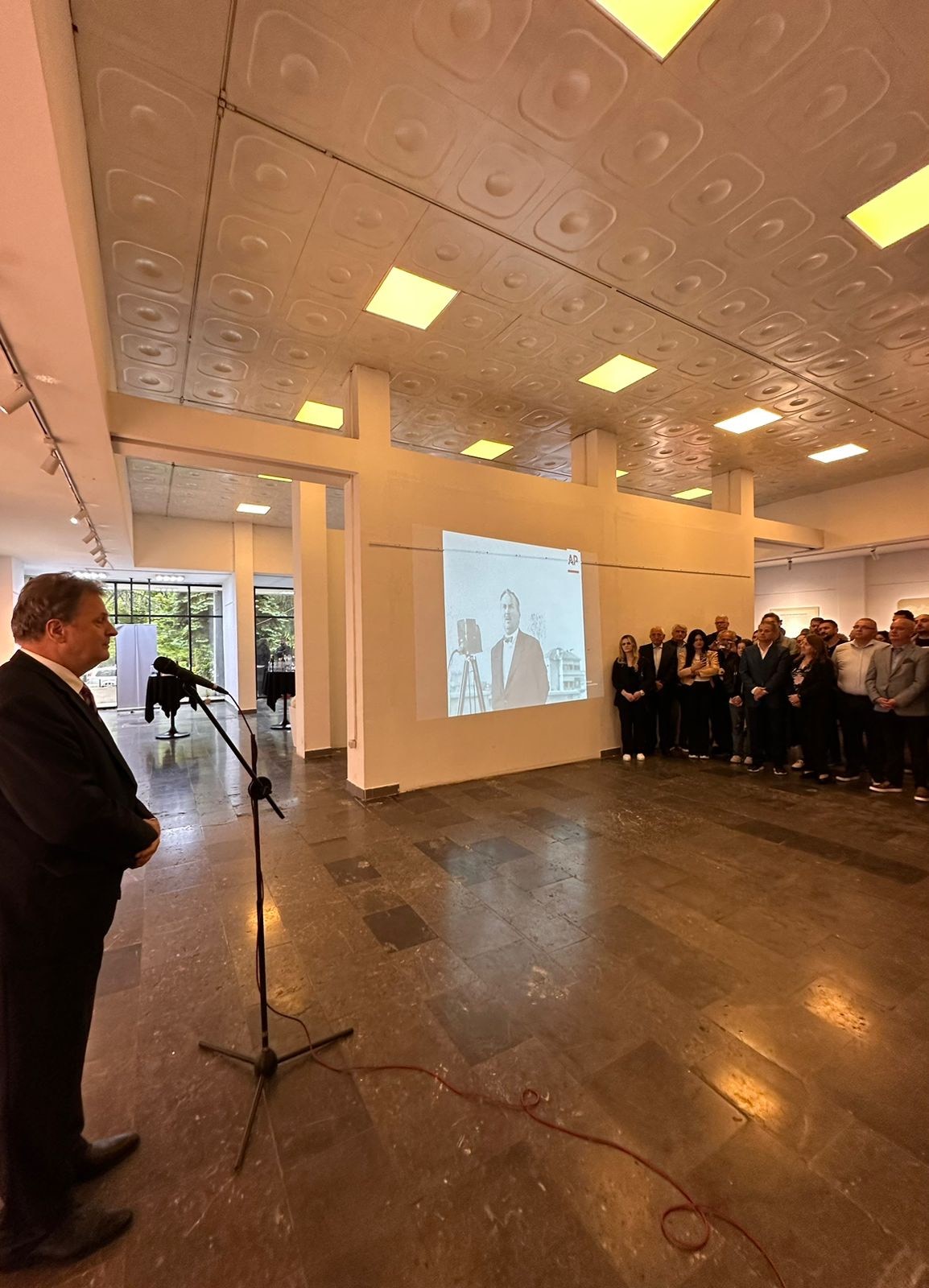
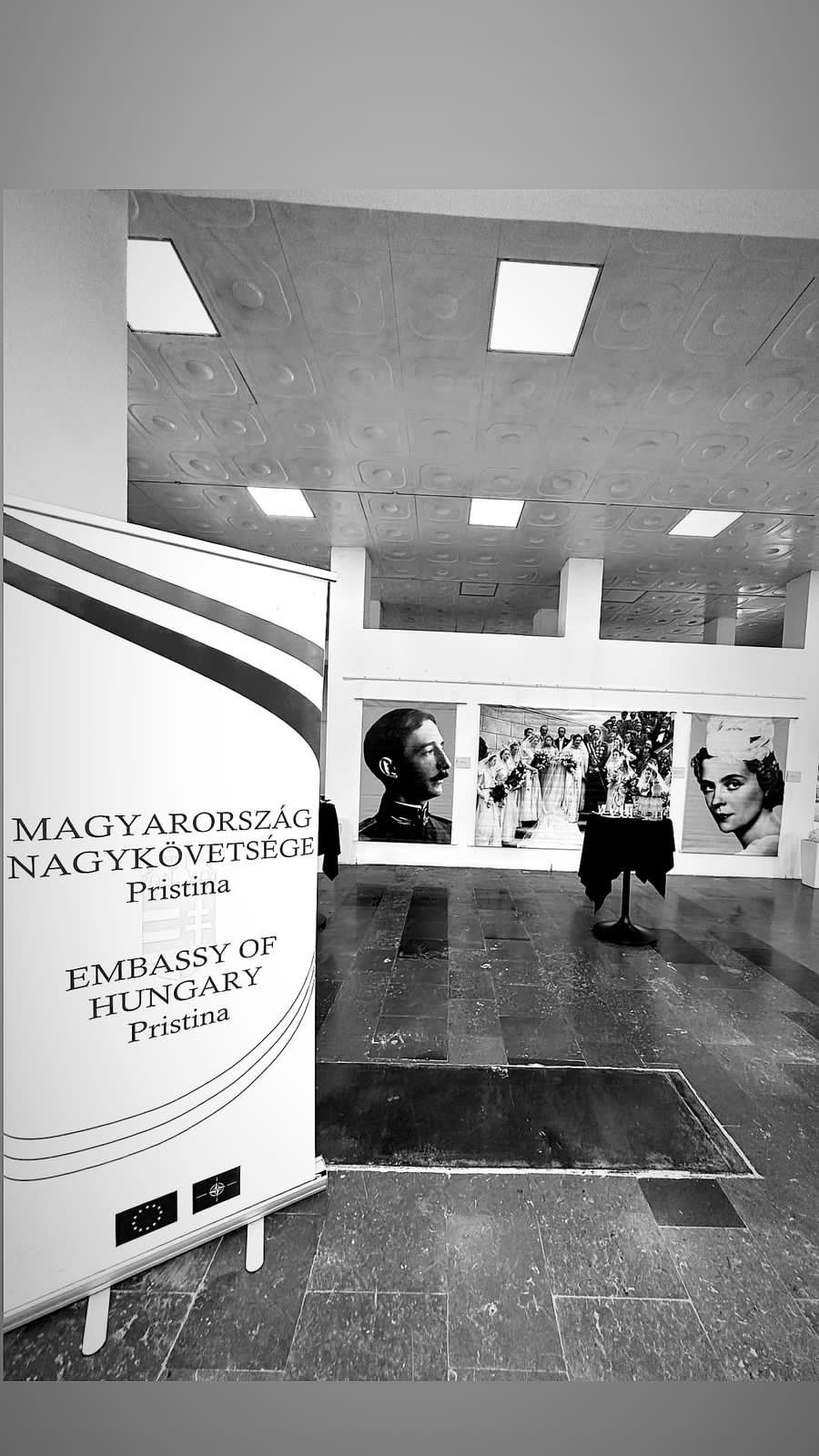
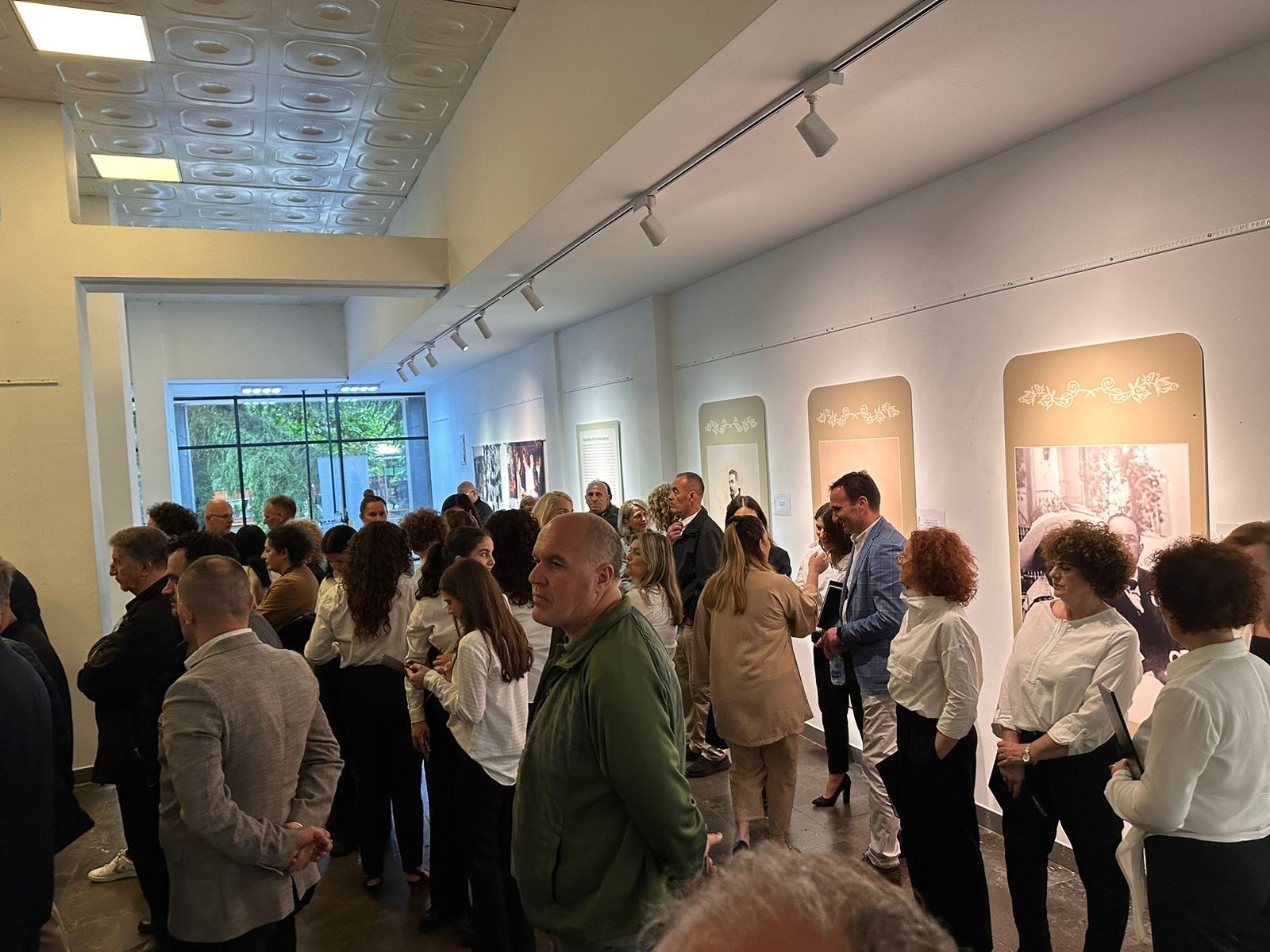
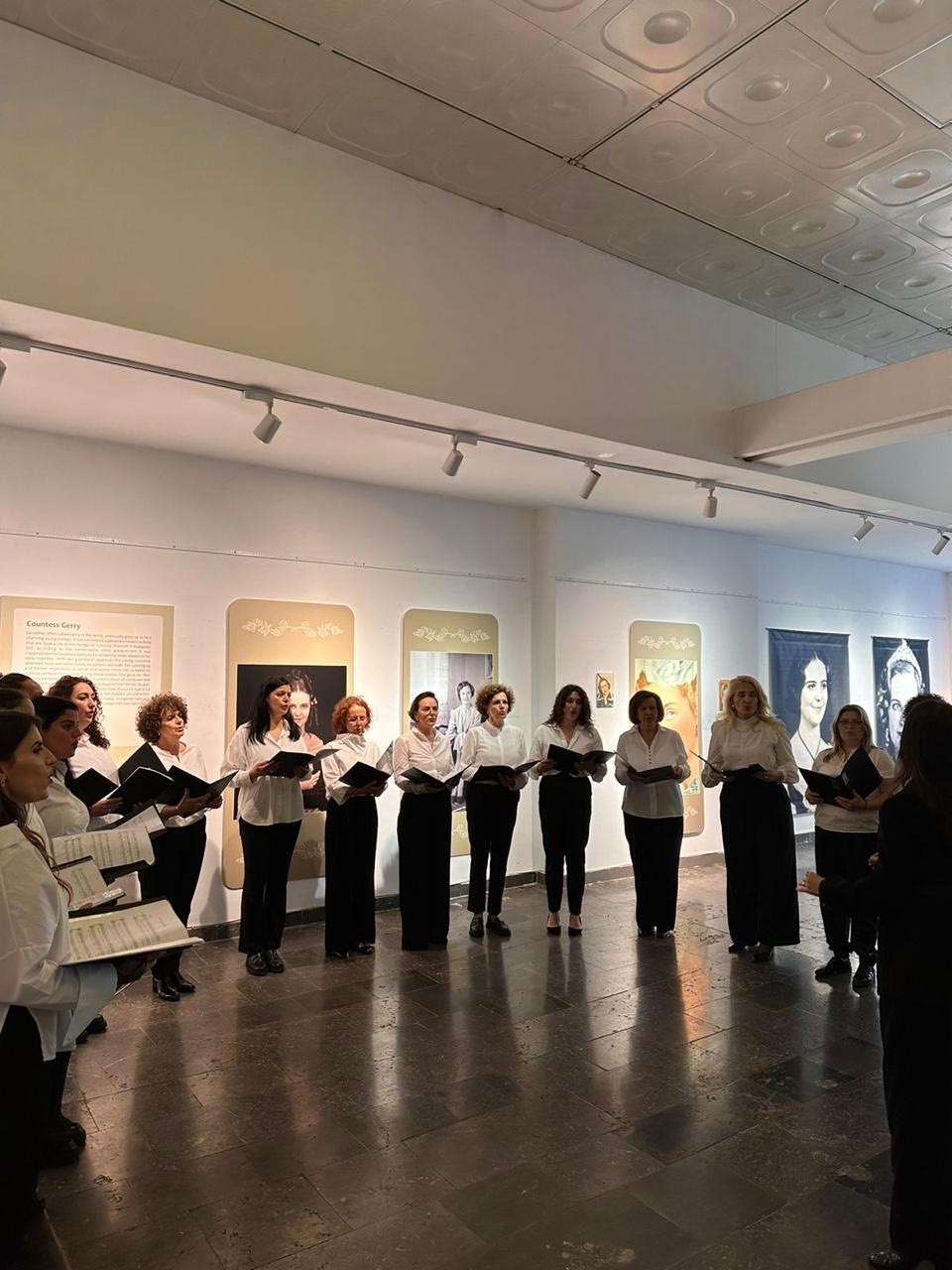
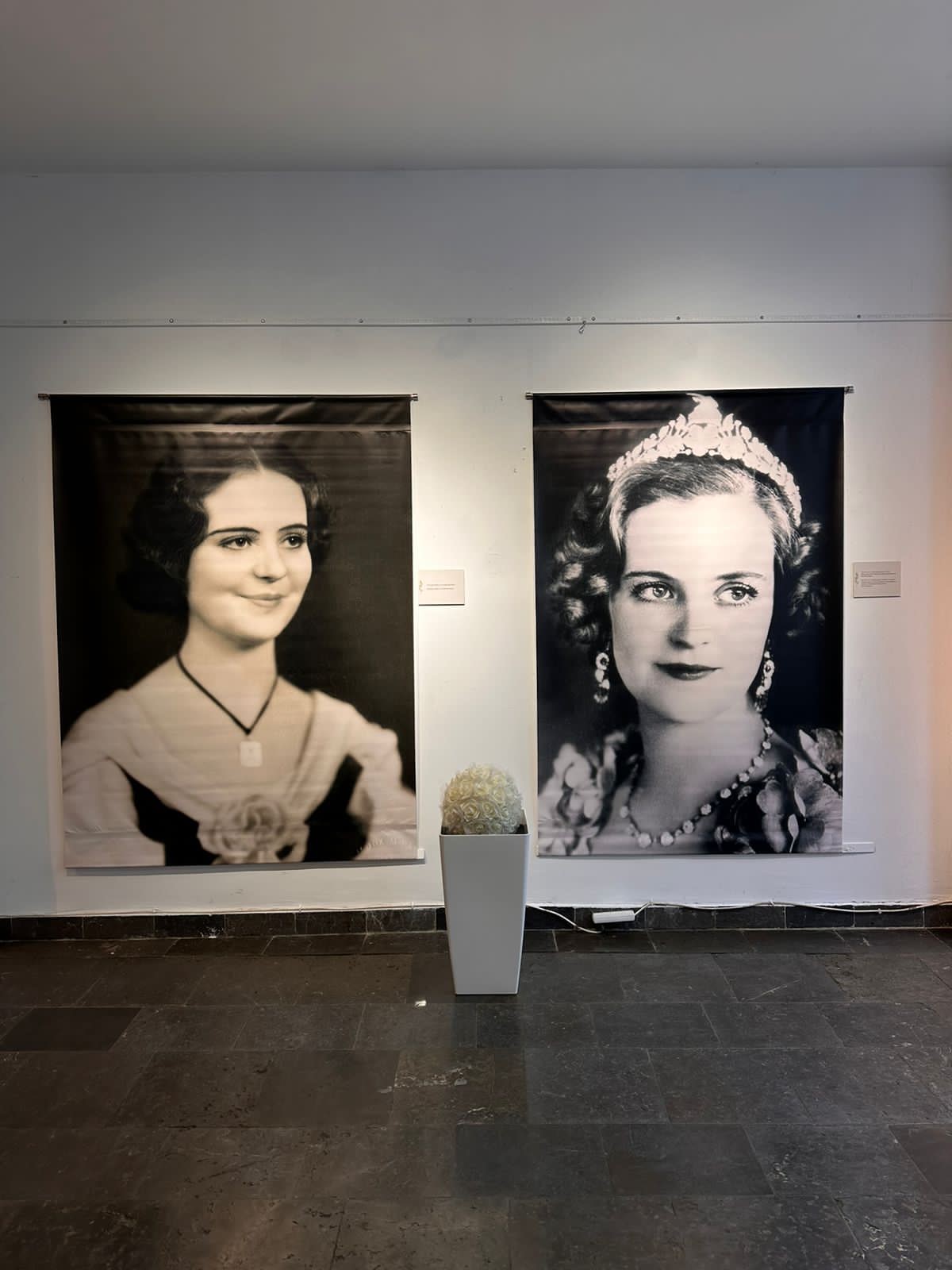
Farewell meetings of H.E. Ambassador József Bencze
Ambassador József Bencze's foreign service in the Republic of Kosovo will end on June 30, 2023, in honor of his mission ending he paid a farewell visit to key partners and dignitaries.
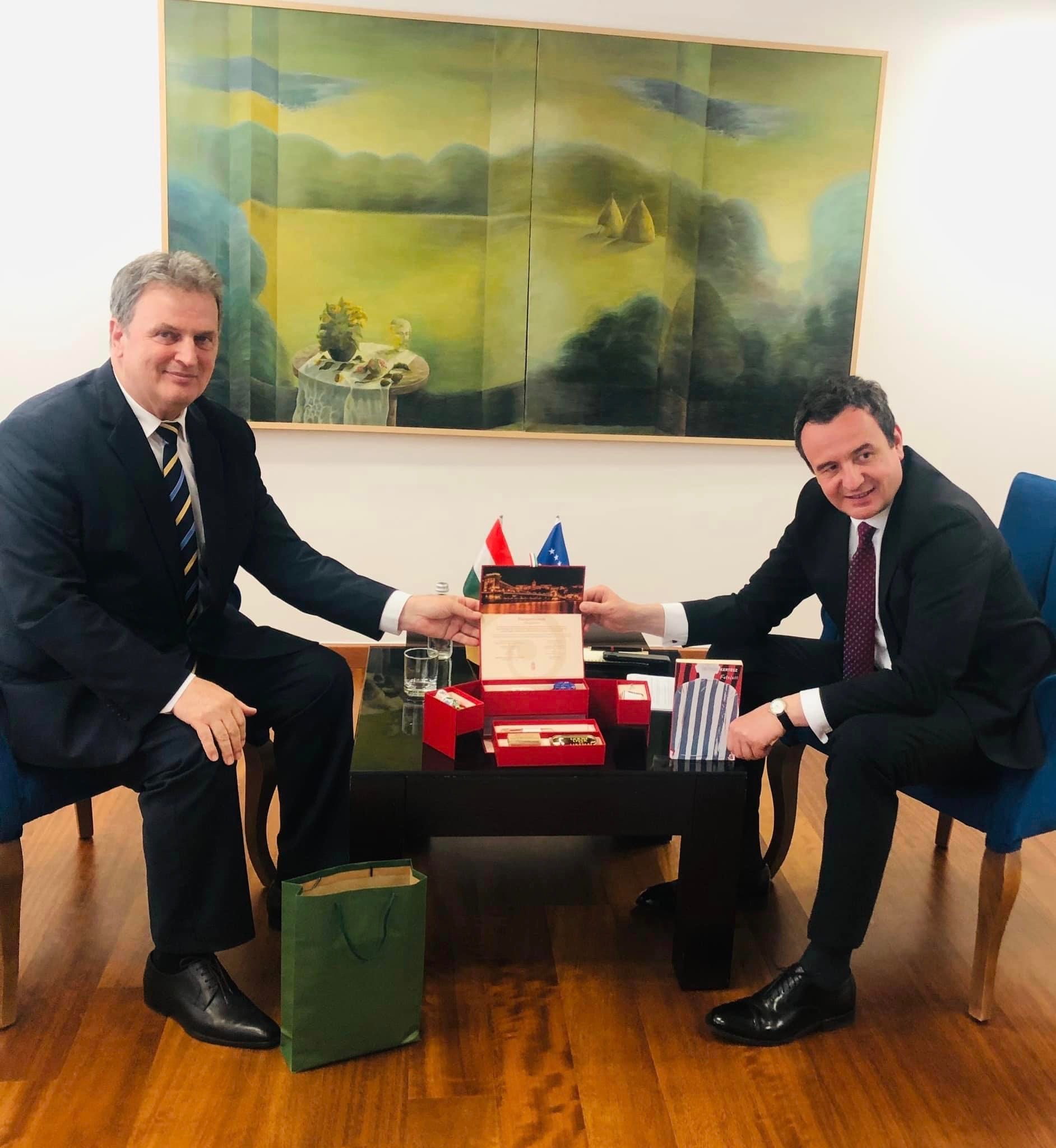
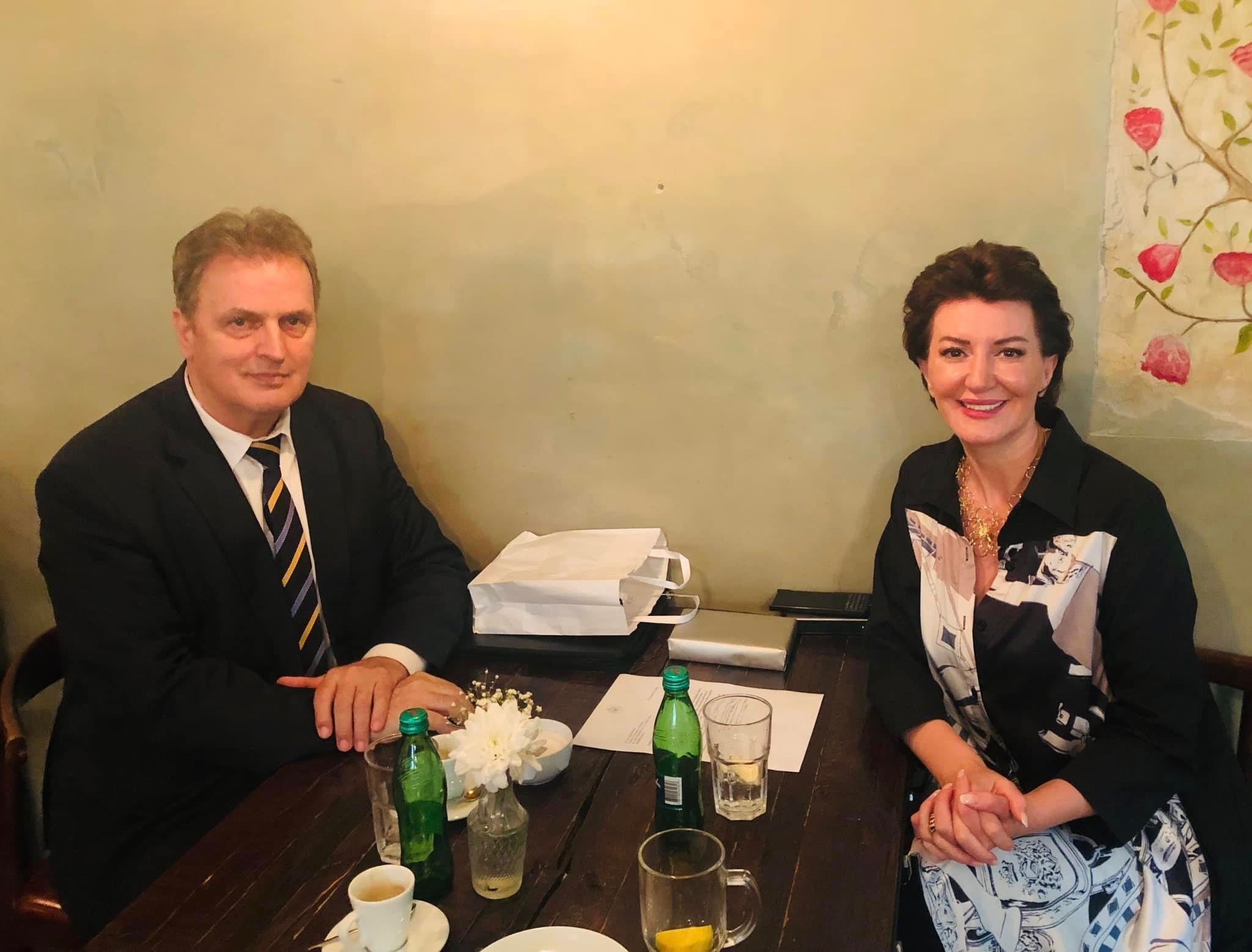
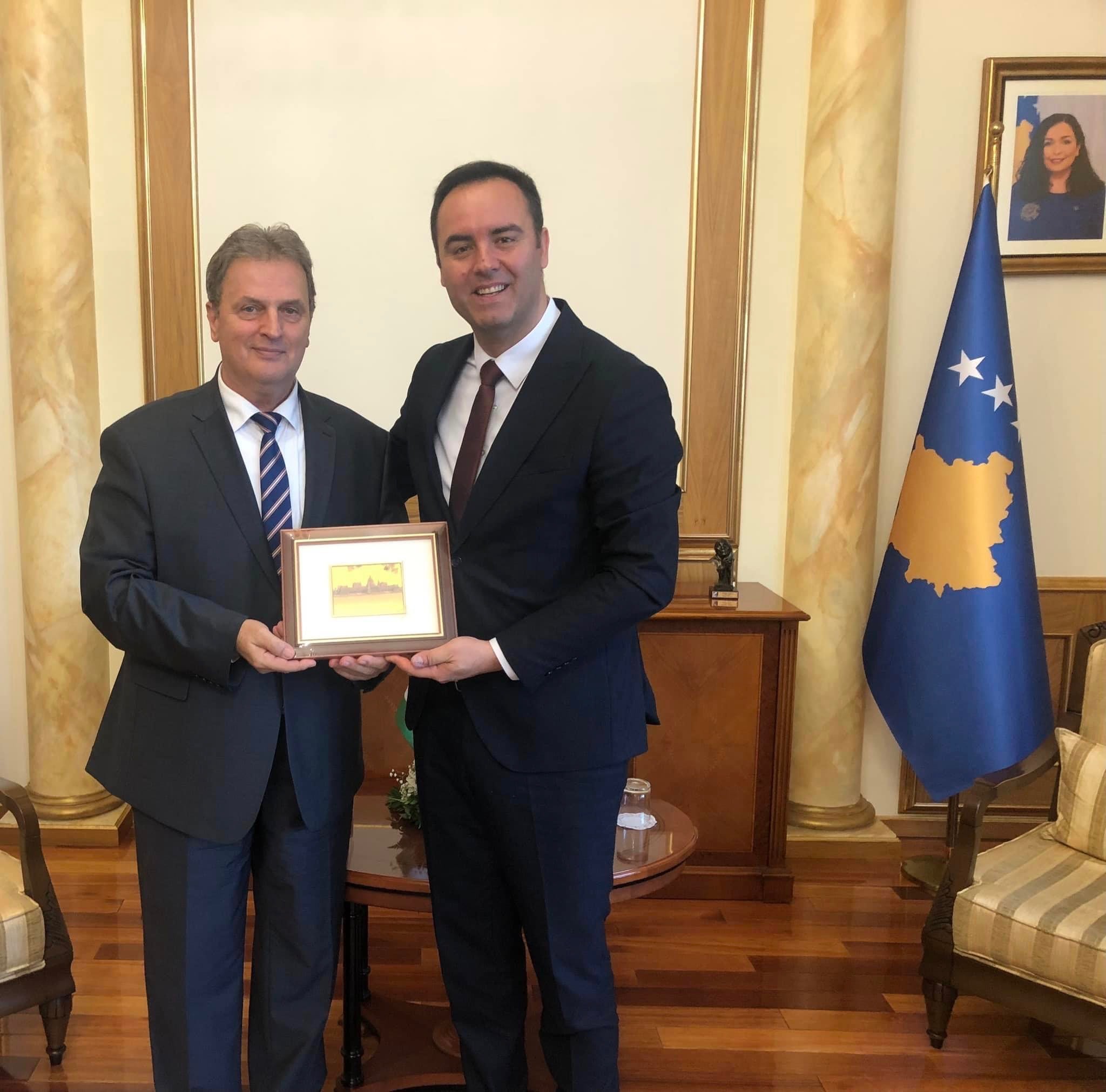
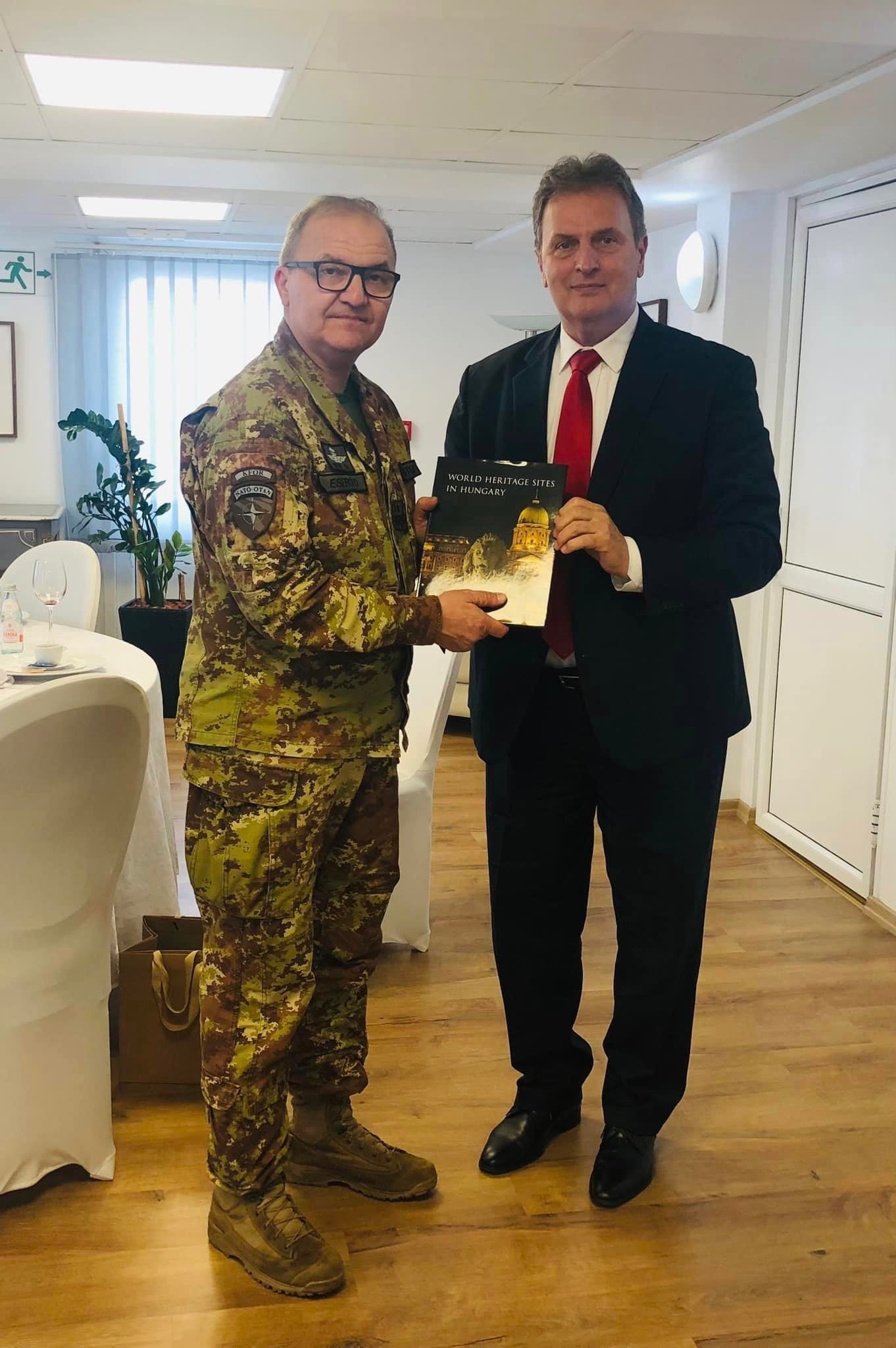
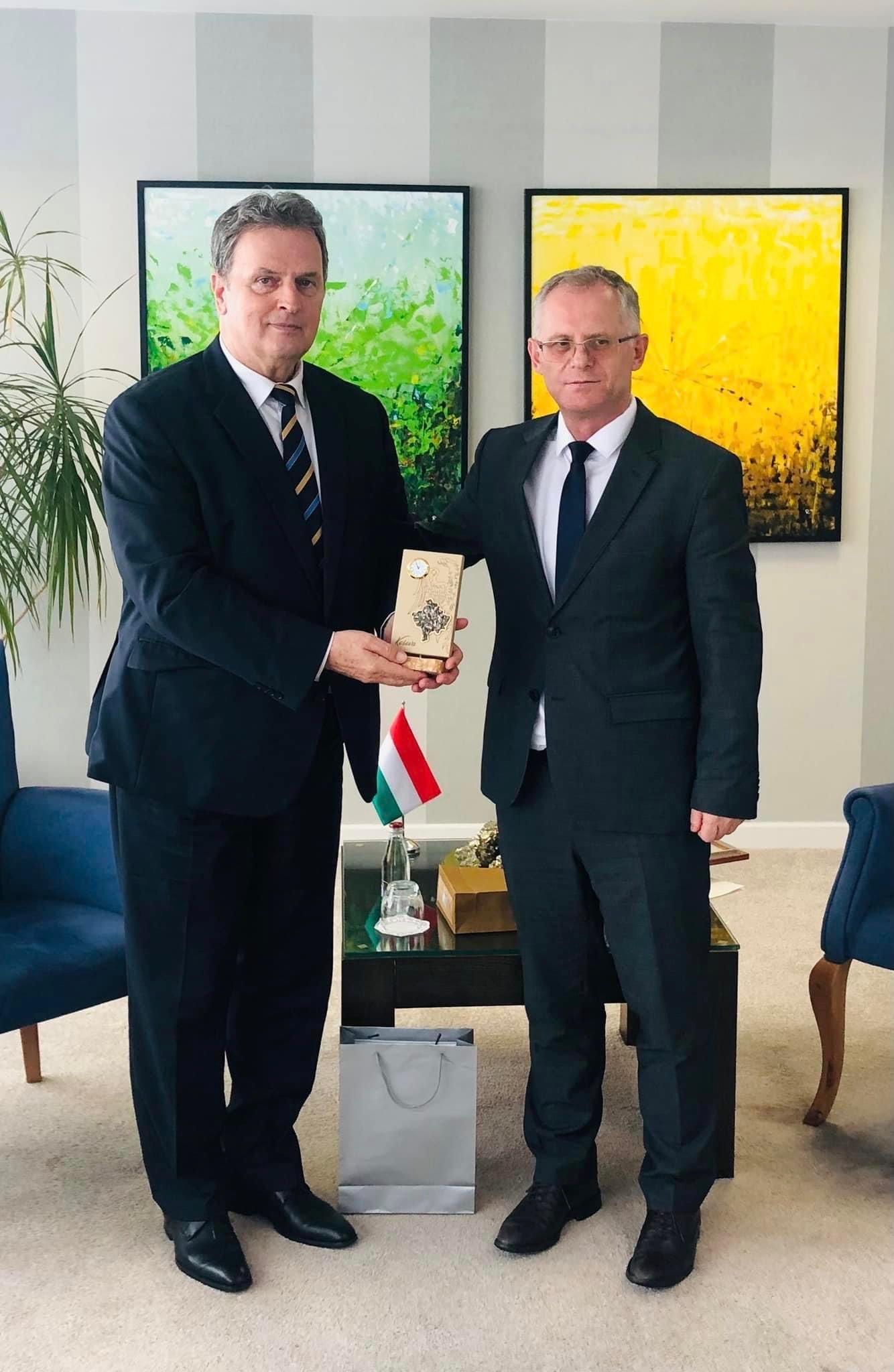
Statement by Prime Minister Viktor Orbán after a meeting of the Hungarian-Serbian Strategic Cooperation Council
Statement by Prime Minister Viktor Orbán after a meeting of the Hungarian-Serbian Strategic Cooperation Council
20 June 2023, Palić/Palics
Madam President, Mr. President, Prime Minister,
Just a few succinct remarks. It is easy to appreciate that the value of one’s land is influenced by the value of one’s neighbour’s land. This is why we Hungarians have an interest in a Serbia that is rich, orderly and happy; that will also increase the value of Hungary. What I have experienced over the past long years shows me that the DNA of our two countries share certain characteristics. I see that freedom, sovereignty and independence are in the DNA of the Serbs. The same is true for the Hungarians. When the President spoke about the respect that Hungarians always give to Serbs, the reason is this shared DNA. Today I am meeting President Vučić for the 32nd time. So in politics, friendship and alliance can only be achieved through hard work. I clearly remember our first meeting, when I was curious to know what the then Prime Minister of Serbia and the Serbs themselves thought about the past. I was curious to know whether they think of the past as something we are prisoners of, or whether they think that the past is the past, and that we will shape the future – not as prisoners of history, but as countries with free will. President Vučić affirmed that it is the latter: we are not prisoners of history, and we will shape history. Since then, ours has been a well-functioning cooperation. Today we have made connections between important things. As the President said, Serbia is not a member of NATO, while Hungary is; Serbia is not a member of the European Union, while Hungary is; Serbia is a country of Orthodox Christianity, while Hungary is [historically] a country of the Roman Church; Serbia is in the Balkans, while Hungary is in Central Europe. These differences do not make cooperation difficult, but add value. When we connect these two different countries through strategic cooperation, huge energies are released, and Serbs and Hungarians will benefit. I stress that today, all over the world, people are talking about why one country or another is not cooperating with another country. Decoupling, de-risking: these are the words of international politics. We are setting a good example to the world, showing that you should not say who you do not want to cooperate with, but should try to cooperate with as many countries as possible. Serbia is the key country in the Balkans, and Hungary is the gateway to Central Europe. We are facing fantastic opportunities.
And finally, Mr. President, if you will allow me, I would like to raise a delicate matter. We are following the events in Kosovo, we are following them closely, and we can see the wrongs that the Serbs are suffering. I find it unacceptable for the international community to regard as legitimate an election which had a turnout of less than 4 per cent. We Hungarians can all see this and we all understand it. There is the case of these three police officers from Kosovo. I respectfully ask the President – I ask you, Mr. President, Dear Aleksandar – to consider this. Serbia has enemies, who are eager to harm Serbia. This is the type of matter in which if you would consider my request and Hungary’s proposal and release and return these three Kosovo Albanians, then in international politics Serbia would certainly be helped, and your cause would be advanced. Therefore here, in public, I respectfully ask you to consider this.
Thank you very much for your attention.
Hungarian Book Corner opened in Gjilan
Ambassador Dr. József Bencze handed over the book package compiled by the Miklós Bánffy Library of the Ministry of Foreign Affairs and Trade to the Fan S. Noli Gjilan City Library.
Ambassador Dr. József Bencze handed over the package of around 50 Hungarian books in English to the director of the library, Qazim Azizi. The Gjilan library celebrated its 85th anniversary in August this year. The municipality turned the former military headquarters into a really spacious, well-equipped library. Digitized copies and about 100,000 books, as well as spacious reading rooms are available in the area of about 3,600 square meters to serve an average of 400 visitors per day. There are books in Albanian, Serbo-Croatian, Bosnian and Romani languages on the shelves.
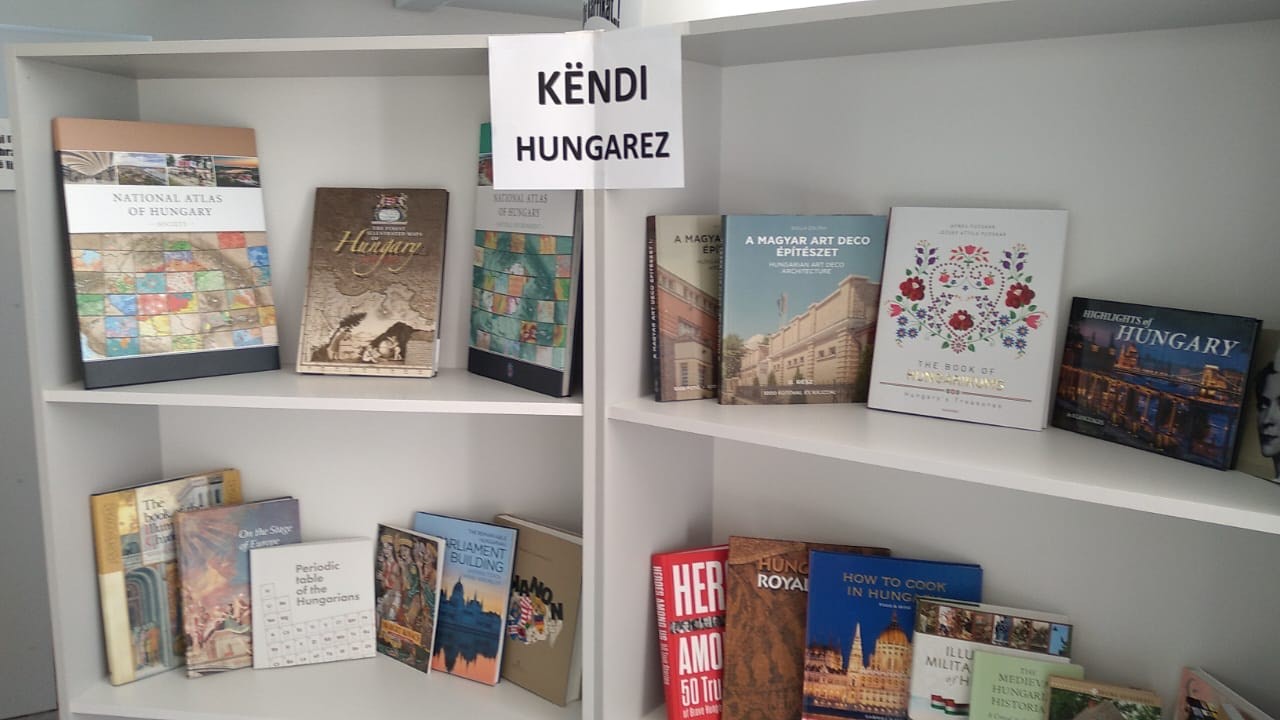
Press statement by Prime Minister Viktor Orbán after a meeting of the prime ministers of the Visegrád Four countries
„We talked about the Balkans. Over the past week I have been to a number of countries in the Western Balkans, and I am pleased to hear that my colleagues continue to share our earlier joint position that there should be an acceleration of the process for accession of the Balkan countries to the European Union. I am also pleased that today the Serbian authorities, the court, have decided to release the three Albanian Kosovo police officers; this has gone some way to easing the rapidly growing tension.”
Novák Katalin köztársasági elnök asszony ünnepi beszéde
Katalin Karikó has been awarded the 2023 Nobel Prize in medicine
An amazing achievment!
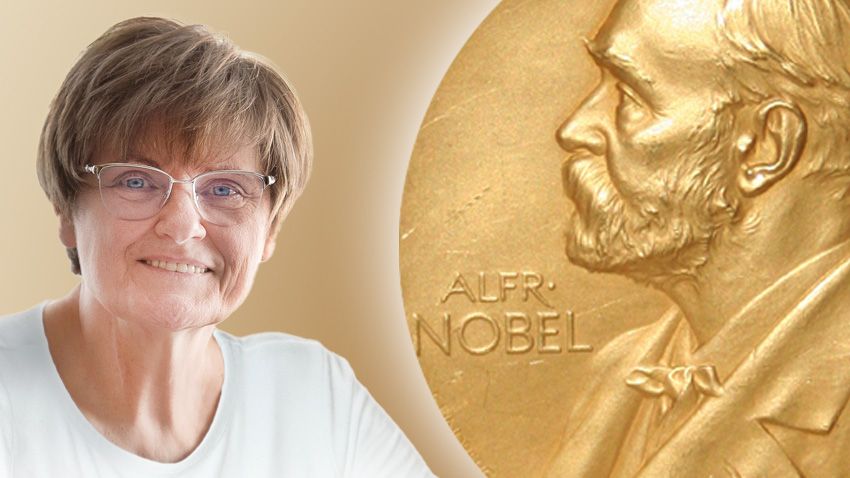
It is with great pride and love that we congratulate Professor Katalin Karikó and Professor Drew Weissman on their Nobel Prize!
“The Nobel Assembly at the Karolinska Institutet has today decided to award
the 2023 Nobel Prize in Physiology or Medicine jointly to
Katalin Karikó and Drew Weissman
for their discoveries concerning nucleoside base modifications that enabled the development of effective mRNA vaccines against COVID-19.
The discoveries by the two Nobel Laureates were critical for developing effective mRNA vaccines against COVID-19 during the pandemic that began in early 2020. Through their groundbreaking findings, which have fundamentally changed our understanding of how mRNA interacts with our immune system, the laureates contributed to the unprecedented rate of vaccine development during one of the greatest threats to human health in modern times.” /https://www.nobelprize.org/
The 2023 Nobel Prize in Physics has been awarded to Ferenc Krausz
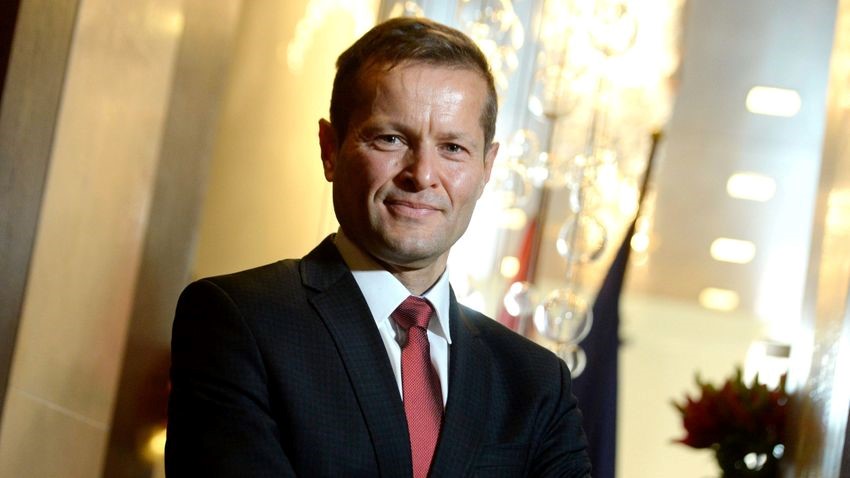
Hungary became richer with two Nobel Prizes within two days. Another Hungarian scientist won the Nobel Prize!
The 2023 Nobel Prize in Physics has been awarded to Ferenc Krausz, Pierre Agostini and Anne L’Huillier "for experimental methods that generate attosecond pulses of light for the study of electron dynamics in matter".
Prime Minister Mr Viktor Orbán’s commemoration speech on the 67th anniversary of the 1956 Revolution and Freedom Fight OCT 23, 2023, Veszprém
PRIME MINISTER VIKTOR ORBÁN’S COMMEMORATION SPEECH ON THE 67TH ANNIVERSARY OF THE 1956 REVOLUTION AND FREEDOM FIGHT
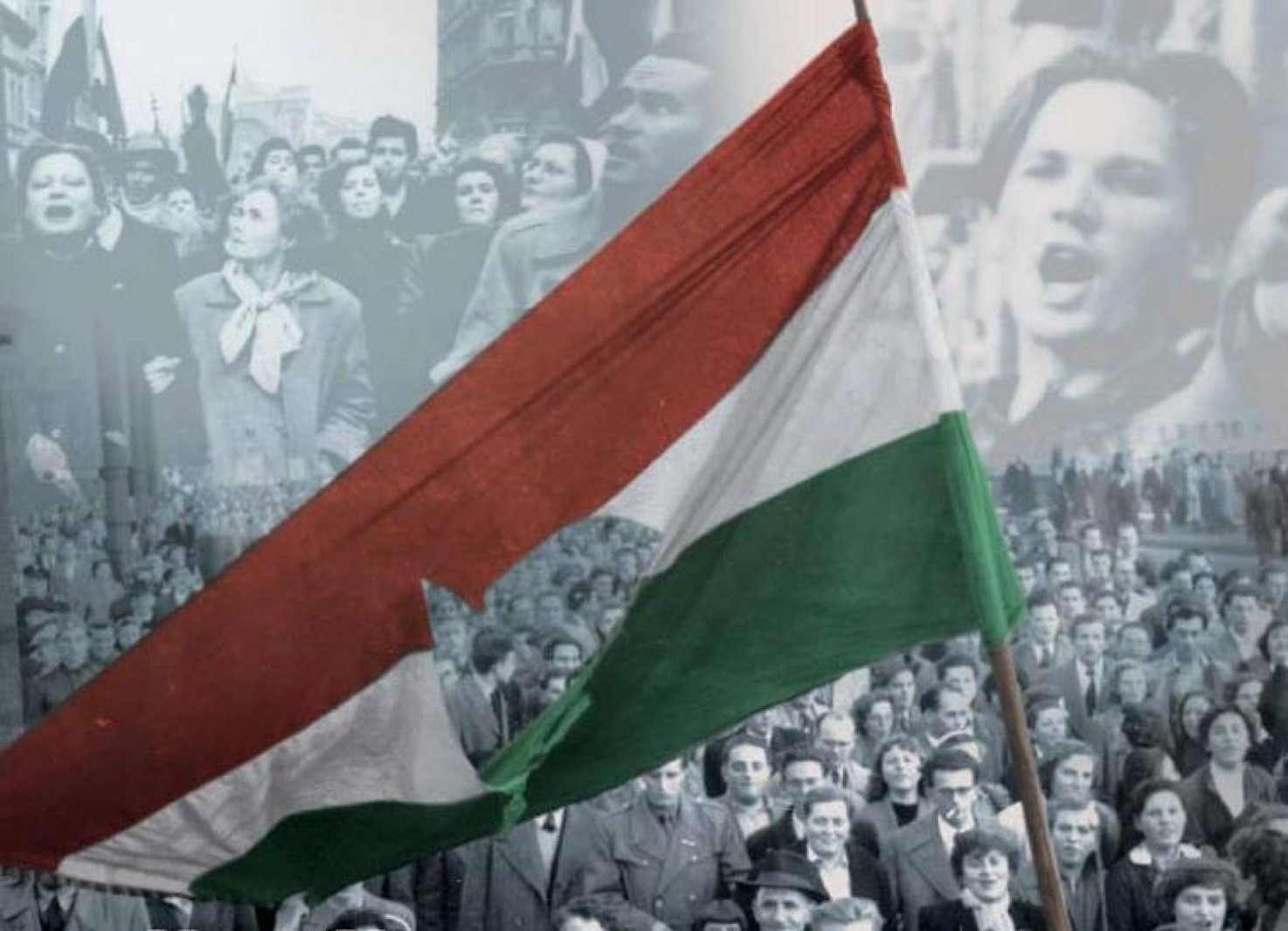
Good afternoon Citizens of Veszprém, Good afternoon Hungary.
Today is a day of remembrance and celebration for Hungarians living in all parts of the world. On the day of Hungarian freedom, from here in Veszprém we salute the Hungarians of Hungary, of the Carpathian Basin and of the whole world. We have come here to celebrate 23 October, but in truth we should have come to Veszprém a day earlier; because the people of Veszprém did not wait for the people of Budapest, but founded their revolutionary organisations independently on 22 October, and proclaimed their demands to the world. They were earlier to wake up. We are not surprised – that is just the way Veszprem is: it likes to be ahead of the curve. It was already thus one thousand years ago: Veszprém was at the forefront in the age of the city’s Christian founders; this is how and why this fortress became the home of Gizella, our first Queen. And thus it was in ‘56: on 23 October the red star was already being hammered to the ground here in Veszprém. Every town and village in Hungary has its own 1956; each of them has something to teach us, and each of them is part of our great shared freedom fight of 1956. Therefore to be distracted by the limelight shone on our capital city and to see 1956 as only Budapest’s revolution is not only unjust and patronising, but absolutely mistaken. This is why it is fitting and just that today, here in Veszprém, we are bowing our heads in memory of the freedom fighters of 1956. God bless the people of Veszprém!
Fellow Commemorators,
The exact number is not known. It is believed that some three thousand people were killed in street fighting and gunfire aimed at crowds, twenty thousand were wounded, and that communist reprisals sent more than two hundred to their deaths and thirteen thousand to prison. Two hundred thousand Hungarians fled the country.. The story of those who suffered reprisals in prison and those who were executed is its own shocking and instructive drama. What Hungarian faces, characters, and Hungarian fates! Their diversity alone proves that ‘56 was indeed a great shared struggle for freedom for the whole nation: among those executed were priests, workers, farmers, teachers and Communist Party leaders; old and young, men and women, Budapesters and provincials. An entire nation stood on the scaffold. The story of the heroic martyr of Veszprém, Árpád Brusznyai, is one of the most moving and instructive. He was a university classical philologist, then a secondary school teacher in Veszprém – a teacher and champion of young people. He was the kind of intellectual who understood the message of the times and knew that if history dealt us Hungarians a new hand, it would be a crime not to pick up the cards and play. He also understood that 1956 would be European Hungary’s last chance for a long time to free itself from the world of Bolshevik socialism, which rejected European culture, Christian civilisation and the right of nations to exist. This could succeed just as had been the case for the Austrians the previous year, in 1955, when the Soviets withdrew from Austria. Brusznyai knew that the doors were closing, and that if we failed to get out then, the whole country would be forcibly herded into the Soviet experiment which sought to create communist man, a communist society and a Soviet empire. And God alone knew whether the Hungarian nation, which had jealously guarded its language, culture, spirit, customs and entire way of life for a thousand years, would survive the Soviet occupation – and if so, what changes it would undergo. There was no alternative: we had to try. This clear thought, this grave historical reckoning, is the reason the 1956 Hungarian Revolution and Freedom Fight was not an inarticulate howl, not an outburst of rage from the oppressed, not a gasping cry for revenge, not an unbridled outburst of the desire for freedom. In addition to all the Hungarian Revolution’s breathtaking heroism and death-defying courage, it was a sober, measured and responsible movement. The Revolution itself was a blaze of Hungarian genius, and the story of Árpád Brusznyai was the true, unadulterated, authentic embodiment of this. Only thirty-two years old, he was a recognised leader who undertook what needed to be undertaken. But he protected the young, not wanting anyone to behave recklessly with the precious blood of Hungarian youth. And he did not allow even justified street revenge against the dictatorship’s marauders, defending them from lynching, damping down emotions, suppressing others’ instincts to cast aside restraint. After the crushing of the freedom fight, the communists executed him. They killed him not because he was guilty, but precisely because he was innocent. The fate of Árpád Brusznyai is a true Hungarian fate. It is our fate: responsibility for our fellow humans, unrelenting truthfulness, a readiness to take action, the just treatment of our enemies. Hungarians are a chivalrous people – sometimes exaggeratedly, at the expense of reason. This is why it repeatedly happens that those we have saved or are protecting end up attacking us. In recent times we have been the first to protect Europe from migration. And we were the first to propose peace instead of war – with which we could have saved hundreds of thousands of lives. And today we are the first and only ones seeking to restrain the peoples of Europe from voluntarily, eagerly and blindly marching into another – even bigger – war. For this we have never received thanks, appreciation or goodwill, but have often received smears, backstabbing and friendly fire. This is a pattern of Hungarian fate that repeats itself again and again. We gain no satisfaction from the fact that the Westerners are now stewing in their own juice. Árpád Brusznyai was thirty-three when he was executed. This finds a parallel in the Gospel of Luke, in which Pilate asks those who demand the crucifixion of Jesus, “What wrong has he done? I can find no fault in him for which I should condemn him to death.” And indeed he was innocent, but they murdered him, cast lots for his robe, and even persecuted his memory, in order to permanently erase him from the history of Veszprém. And for three decades this was successful. I remember that during our secondary school years we never heard the names of Pongrátz, Ilona Tóth or Brusznyai; but we did hear the names of the murderers who sent them to prison, sentenced them to death and concealed all memory of them.
My Friends,
The shadow of old crimes is a long one, and when a crime is committed against an entire nation, it casts a shadow extending over seven generations and more. Today we know who Brusznyai and his associates were, but we are no longer willing to even utter the names of the murderers. Theirs is contempt and oblivion, while for Brusznyai and those like him we accord reverence and eternal remembrance. Glory to the heroes of ‘56!
Fellow Celebrants,
Glory does not mean that we can comfortably walk away from painful lessons. Our nation is strong enough to face up to its faults. We know that the traitors are also part of our nation, and they are also in our history, like the “ill fate” mentioned in Himnusz [the Hungarian national anthem]. Where there are heights, there are also depths, and this law cannot be overruled by the city of Veszprém – however glorious and respected it is. Here, too, 23 October was followed by 4 November. After Brusznyai’s first sentence of life imprisonment, the Communist Party’s First Secretary for the County wrote from here in Veszprém to request that the punishment be increased, “in the name of the County’s Communists and honest workers”, as he put it. We shall not forget that either.
Fellow Celebrants,
In the end 1956 triumphed in 1990. We who were there – who fought the political battles against the Soviet Union and the Communist Party leadership – remember it well. We could not have won without the legacy of 1956. We fought in the name of freedom, and those who were executed in the struggle for freedom gave us the strongest weapon; because those we opposed in 1989 were brought to power by the crimes committed against Hungarians in 1956, and therefore their power stood on unstable foundations. With the political transition, the communists only had a chance to enter the era of democracy with their skins intact and with a glimmer of hope for a political future if they first confessed to their greatest crime; and as soon as they had confessed to it, they lost power. They had to bury the previously undisclosed remains of the victims in public, but as soon as their bodies were buried, their souls were released and floated above the head of the leader of the Hungarian Socialist Workers’ Party [MSZMP]. As the Fundamental Law of Hungary puts it, and I quote, these “were criminal organisations, and their leaders shall have responsibility without statute of limitations for … suppressing with bloodshed” the ‘56 Revolution. And as I see it , the successor party to the MSZMP is now microscopic in size; and I have no doubt that the last left-wing party – conceived as the last escape route for the communists – will end up where the spirit of ‘56 decrees it should. In 1989 all we had to do was to finish what the ‘56-ers had started, to show that thirty years of enforced silence was not equivalent to forgiveness, and that sooner or later the account – the historical account – would have to be paid. We just had to muster the courage to point at them and declare that the Emperor had no clothes and could not escape the judgment of the people. In the spirit of Brusznyai, the verdict was declared in free and democratic elections in which anyone could stand – even communists. Thirty years later, there is still debate over whether – given the resulting democracy’s feebleness in delivering justice – the Hungarians made the right decision back then. However we judge it, what is certain is that in Hungary we freed ourselves from Soviet occupation and replaced the communists without civil war or the loss of a single human life, and we avoided – albeit painfully and bitterly – Hungary’s economic and political collapse. Since thirty-three years ago to this day, in fact, Hungary is the only country in Europe never to have needed an early election; and we are still the safest and most stable country in the whole of Europe.
Fellow Celebrants,
1956 triumphed, and we rejoined the community of European peoples. This also forms part of historical recompense. But it is also true that Europe – the place to which we have returned – is no longer the place from which we were torn. And it seems to me that it is moving ever further from that place. We wanted freedom, we are free, and Europe is united in freedom; but now we have to face up to the fact that we have different conceptions of freedom, and different conceptions of what a free world is. From here, it seems as if freedom for Westerners is some kind of escape: “Break free from yourself, break free from what you were born as – or at least change what you were born as! Grow out of your past, like a childhood disease! Change gender! Change nationality – or at least leave it behind and change your identity! change every component of yourself, reassemble yourself according to the latest fashion, and you will be free!” Here in Hungary we wanted the exact opposite. We wanted to finally be who we are. The idea of my not being a man, not being Hungarian and not being a Christian is like having my heart ripped out. For us freedom is not escaping from ourselves, but the opposite: freedom is an arrival, a homecoming. A commitment: be who you are! Accept that you were born Hungarian, born Christian, born a woman or a man. Accept that you are the child of your father and mother, the spouse of your husband or wife, the parent of your daughter or son. Accept that you are a friend, and that as a child of your country you are a patriot. Not in ‘56, nor in ‘90, nor in 2023 were we – or are we – prepared to renounce this for the sake of Moscow or Brussels.
Dear People of Veszprém, Dear Friends,
For us, freedom is a survival instinct. My family, my friends, my country: all are me. For the Hungarian people, the fight for freedom is not something that they can take on or resolve: freedom must be defended, otherwise we are lost. Thus it was in ‘56, in 1990, and thus it is today. It is as simple as that. All the greats of old knew this, from King Stephen to the ‘56-ers. A Therefore the Hungarian nation is a freedom-fighting nation, and the precise essence of the Hungarian nation’s strategy for life is that we end up standing by the grave of every occupying empire.
Fellow Commemorators,
We also need to talk about the fact that in our lives today we see things that remind us of Soviet times. Yes, history can repeat itself. Fortunately, what was a tragedy the first time round is at best a comedy the second time. Fortunately, Brussels is not Moscow: Moscow was a tragedy; Brussels is a bad contemporary parody. We had to dance to the tune Moscow whistled. Even when Brussels whistles, we dance the way we want to; and if we don’t want to, we don’t dance. But the lecturing from the comrades is the same – except now it is called a “conditionality procedure”. The censure of Hungary by the Party is now called the “Brussels rule of law procedure”; and now tanks are not rolling in from the East, but dollars are rolling in from the West – to the same places, and to the same people. The big difference is that the Soviet Union was hopeless, while the European Union is not yet. It is true that it has surrendered itself to migration, and it is true that it cannot pull itself out of the war that it has been rash enough to enter. And it is also true that it has entrusted its fate to leaders who are incapable of defending its security, freedom and prosperity. Moscow was beyond repair, but Brussels and the European Union can be repaired, and there will be European elections. Europe is still alive, still breathing, and in its body its vital systems are still operating – as is so brilliantly and convincingly demonstrated by the city of Veszprém, European Capital of Culture. The home of Árpád Brusznyai and the Veszprém heroes of ‘56 is today the European Capital of Culture. Do we need any clearer encouragement for next year’s elections to the European Parliament?
Dear Citizens of Veszprém,
Famous photographs preserve the memory of candles being lit and messages being placed where the freedom fighters met their deaths. On the most famous of these photographs is this note: “We promise that your deaths have not been in vain!” This is why we are here today: to remind ourselves of our old promise. The sacrifice of the ‘56-ers will only make sense if we defend, live and pass on Hungarian freedom. They did not die in vain if we do not live in vain, if we give to the world what only we can give. In this, Veszprém is doing well, it is doing just that: it is showing what the world is like if you look at it with Hungarian eyes, if you paint it in Hungarian, if you sing it in Hungarian. Today Veszprém is showing the whole of Europe what Hungarian culture is like, what freedom is like, if you are Hungarian.
My Friends,
We are able to do this because we have not lost sight of the most important law of survival. We still know that the past is not behind us, but beneath us: it is what we stand upon. On the 67th anniversary of the 1956 Freedom Fight, I salute the heroes, known and unknown, and the honour of our compatriots who – despite decades of hardship and suffering – did not give up, but set an example for us all.
Long live Hungarian freedom, long live the homeland! God above us all, Hungary before all else! Go Hungary, go Hungarians!
23/10/2023
SOURCE: CABINET OFFICE OF THE PRIME MINISTER
National Day Reception
Glory to our heroes!
On October 23 we commemorated the 67th anniversary of the 1956 Hungarian Revolution in Pristina. Ambassador Béla Bozsik and Mr Glauk Konjufca, President of the Assembly of the Republic of Kosovo addressed the guests of the event.
We thank all our dear friends for celebrating the Hungarian National Day with us!
The Ambassador of Hungary in Humanitarian Law Center Kosovo
The Ambassador of Hungary in Kosovo, Mr. Béla Bozsik, today visited the Kosovo Documentation Center and the two exhibitions that are currently open.
He had the opportunity to see the exhibition "Once upon a time and never again" as well as Barbara Prenka's work of art titled "New Day".
At this meeting, the work and activities of the FDHK were also discussed.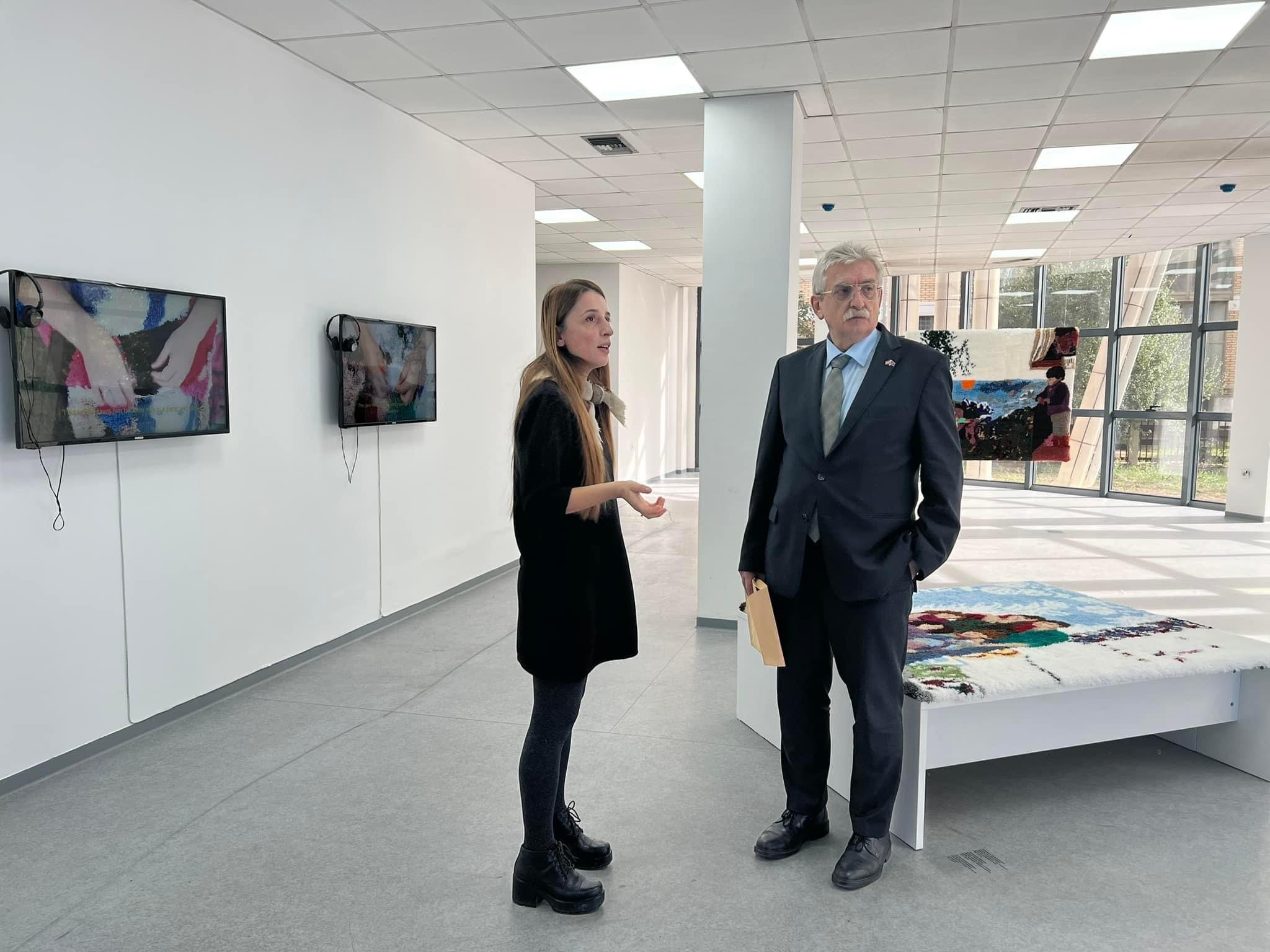 https://www.facebook.com/100064442301631/posts/pfbid02YTAYfmfYdQf1GhZjwYtTRLm2nyQdMm7mV8Ex7okLzsDwGbxhtXYdNXhmASMfWPQMl/?d=w&mibextid=qC1gEa
https://www.facebook.com/100064442301631/posts/pfbid02YTAYfmfYdQf1GhZjwYtTRLm2nyQdMm7mV8Ex7okLzsDwGbxhtXYdNXhmASMfWPQMl/?d=w&mibextid=qC1gEa
Call for Applications for the Stipendium Hungaricum scholarship
We are happy to announce that the Call for Applications for the Stipendium Hungaricum scholarship for the academic year 2024/2025 have been published on the following website
The Hungarian Government established the Stipendium Hungaricum scholarship programme to promote the internationalisation of Hungarian higher education and to attract top international students from all around the world who can establish personal and professional links to Hungary while enjoying high-quality education in the heart of Europe.
For more information, please follow the links below.
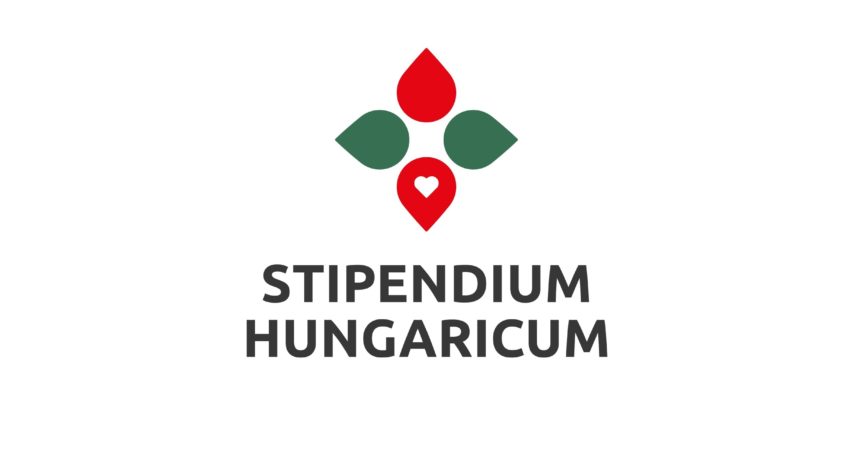
Stipendium Hungaricum Scholarship Program
Dear Students!
Apply for studies in 2024/2025 in Hungary with the Stipendium Hungaricum Scholarship Program!
We are happy to announce that the Call for Applications for the Stipendium Hungaricum scholarship for the academic year 2024/2025 have been published on the following website.
The Hungarian Government established the Stipendium Hungaricum scholarship programme to promote the internationalisation of Hungarian higher education and to attract top international students from all around the world who can establish personal and professional links to Hungary while enjoying high-quality education in the heart of Europe.
For more information, please follow the links below:
